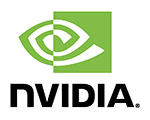TensorFlow and medicine: Using deep learning for real-time segmentation of colon polyps
Who is this presentation for?
- Data scientists, beginner engineers, and doctors
Level
Description
The public health sector is one of the most rapidly growing in the twenty-first century, and with new methods of collecting data comes a need for more methods to analyze it. Computational methods—particularly machine learning—are incredibly useful in extracting meaningful insights from medical data. Aalok Patwa explains his experiences with TensorFlow in past projects: specifically, creating a deep learning model to perform real-time, accurate detection and segmentation of colon polyps from colonoscopy images and videos.
Colorectal cancer is the second leading cause of cancer-related death in the United States, and early detection of precancerous polyps (adenomas) in the colon increases the chance of survival. However, the adenoma detection rate (ADR) during screening colonoscopies varies between 7% and 53%. Computer vision models can aid in identification of both precancerous and cancerous polyps, increase the ADR, and save lives.
Aalok used TensorFlow through Keras to create a fully convolutional neural network (FCNN) composed of a novel architecture inspired by the work of Ronneberger et al. The model achieved high dice scores on challenging datasets while being 84% smaller than current models and using 96% fewer training images. You’ll understand the machine learning techniques used to improve accuracy, training time, computational efficiency, and more characteristics and how to use TensorFlow in every stage of the machine learning process from model architecture to data augmentation to reviewing results with TensorBoard. Aalok also provides insight into further possibilities with deep learning in medicine and how much TensorFlow can benefit healthcare in the future.
Prerequisite knowledge
- A basic understanding of data science and Python programming (useful but not required)
What you'll learn
- Learn TensorFlow techniques to build, train, test, and improve models and techniques specific to deep learning in a medical imaging setting
- Discover opportunities for machine learning in other areas of medicine and healthcare, such as genomics, proteomics, prognosis, and modeling
- Find out how you can brainstorm project ideas and bring your plans to reality

Aalok Patwa
Archbishop Mitty High School
Aalok Patwa (he/him) is a sophomore at Archbishop Mitty High School, California, interested in machine learning and healthcare. He’s done several research projects in the past that have won awards at the regional, state, and national level. He’s also committed to outreach, imparting his knowledge about computer science and medicine to the broader public. Aalok is the president of the computer programming club at his high school and an avid participant in speech and debate. He won the first place category award in the Synopsys science fair in 2018 and 2019, was a national finalist at the Broadcom MASTERS Science Fair in 2016, earned a Raytheon achievement award at the California State science fair in 2016, and was a speech and debate national qualifier.
Presented by
Diamond Sponsor
Elite Sponsors
Gold Sponsor
Supporting Sponsors
Premier Exhibitors
Exhibitors
Innovators
Contact us
confreg@oreilly.com
For conference registration information and customer service
partners@oreilly.com
For more information on community discounts and trade opportunities with O’Reilly conferences
sponsorships@oreilly.com
For information on exhibiting or sponsoring a conference
pr@oreilly.com
For media/analyst press inquires








